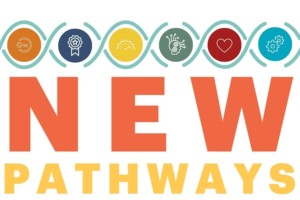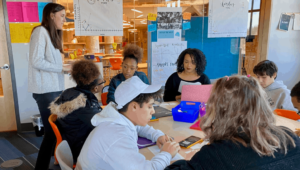The Coming Social Economy

More than a third of the American workforce participates in the freelance economy. The majority of current high school students will spend at least part of their careers freelancing.
Ridesharing apps Uber and Lyft may be the most visible part of this new service economy but a larger number of workers find gigs on Craigslist, Thumbtack, TaskRabbit, and Upwork.
These platforms create markets that match buyers and sellers. They build trust around value transactions. They help unlock the value of underutilized time and talent. On these platforms, people are able to both produce and consume.
Next on the horizon is a social economy of people helping people. This new wave has begun on current market platforms but it’s about selling time—hours of home health care, hours of tutoring, hours of music lessons.
As populations age and as automation eats jobs based on the application of a rule set, the need and opportunity for the social economy will expand. The social economy will be built on the traits that make us uniquely human—care, consideration, creativity, and critical thinking.
“Humans generally find their place in life through contribution,” said Jeff Fray, psychologist and SVP at the growth platform Gloo, “and it is this desire to contribute that is the massively latent human resource that will drive tomorrows social economy.”
Measured efficacy will unlock the new social economy. Data will tell the value creation story of how well one person supports the growth of another.
Rather than a simple job placement fee, headhunters will be rewarded based on starting salary and continued employment. A social worker that places foster youth will be rewarded based on success in school, work, and life. A tutor will be rewarded based on academic development and learner rating.
Contribution Markets
We’re already seeing private social markets emerging on existing platforms. It’s not hard to imagine publicly sponsored social markets where seniors receive vouchers for assisted living services and families receive coupons for learning experiences.
Public and philanthropic subsidies could boost remuneration for caring professions–better pay for early learning teachers and home health aides, for example.
But it will be private markets that really unlock value creation for the caring economy and it will be efficacy measures that promote real contribution not just clock punching.
Cottage Class, a New York startup, created a market for all kinds of full and part-time learning experiences. Imagine if some or all of the compensation was based on growth.
Jeff Fray can imagine a “net contribution score for an individual,” an aggregation of service endeavors—remunerated as well as volunteering.
As data tells the story of the efficacy of value exchange, the agency of trust is decentralized from taxi to Uber; from hotel to Airbnb. Distributed ledger technology will support the monetization of social value exchange–one person helping another.
The social economy will require a contribution rather than extraction mindset. Instead of trying to find a job, the focus will be on adding value. Instead of “waiting to be picked” (as Seth Godin said in a recent podcast), people will “pick themselves” and offer their services on platforms.
Like the shift from seat time to competency in learning, the shift from selling hours to measured efficacy will unlock latent energy in the social economy. Initially, platforms will include a dashboard of proxy measures. Over time, systems that accurately gauge contributions to growth and well-being will improve.
Fray sees the social economy as a “big bet for the future: human motivation for meaningful connection and contribution that will hold civic society together.”
The opportunity to care, heal, teach, and develop is about to get better in the social economy.
For more see:
- 3 New Literacies for the Innovation Economy
- Capitalism That Works For Everyone
- Sharing: the New Superpower
This post was originally published on Forbes.
Stay in-the-know with all things edtech and innovations in learning by signing up to receive our weekly newsletter, Smart Update.






0 Comments
Leave a Comment
Your email address will not be published. All fields are required.